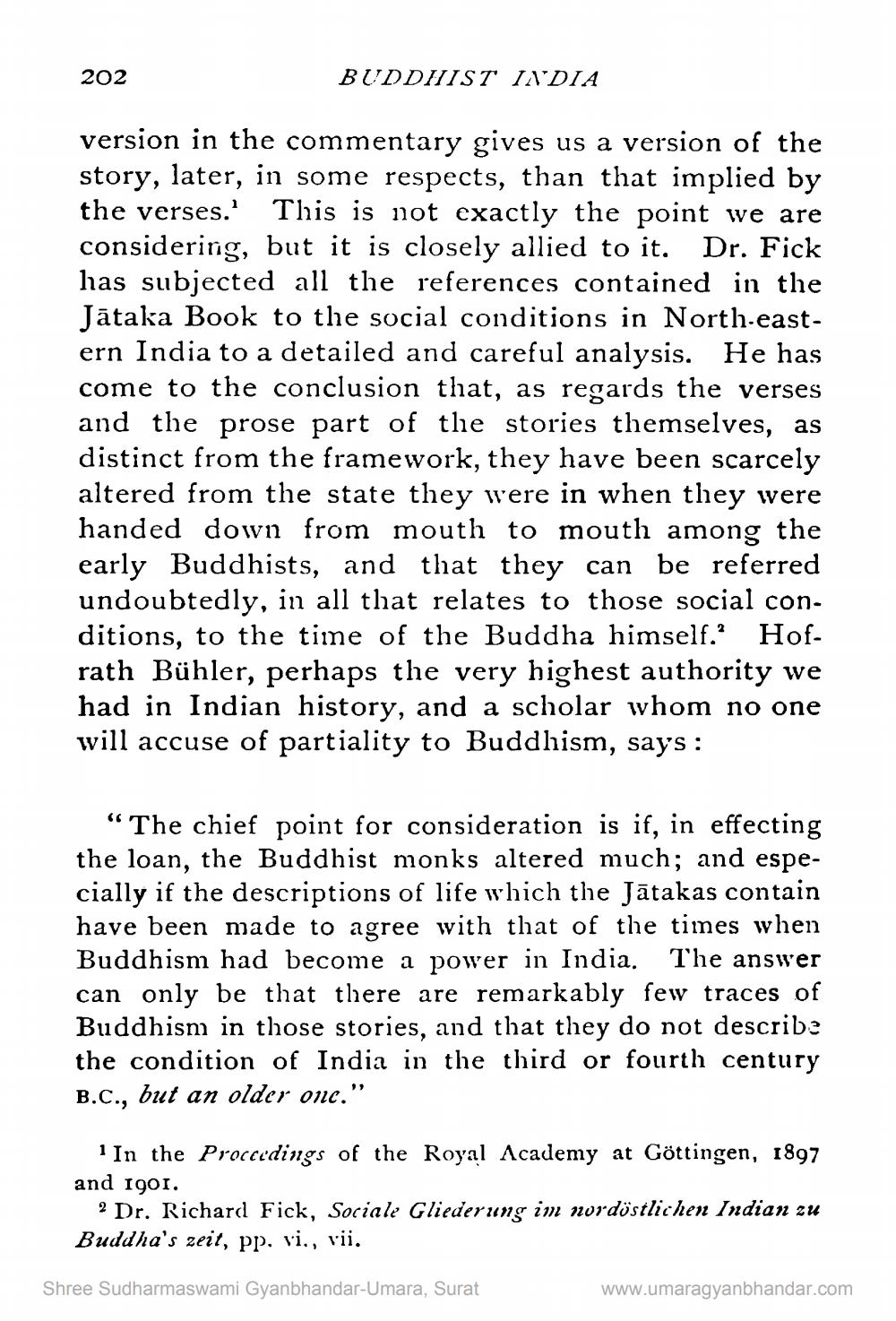________________
202
BUDDHIST INDIA
version in the commentary gives us a version of the story, later, in some respects, than that implied by the verses. This is not exactly the point we are considering, but it is closely allied to it. Dr. Fick has subjected all the references contained in the Jātaka Book to the social conditions in North-eastern India to a detailed and careful analysis. He has come to the conclusion that, as regards the verses and the prose part of the stories themselves, as distinct from the framework, they have been scarcely altered from the state they were in when they were handed down from mouth to mouth among the early Buddhists, and that they can be referred undoubtedly, in all that relates to those social conditions, to the time of the Buddha himself.' Hofrath Bühler, perhaps the very highest authority we had in Indian history, and a scholar whom no one will accuse of partiality to Buddhism, says:
“The chief point for consideration is if, in effecting the loan, the Buddhist monks altered much; and especially if the descriptions of life which the Jātakas contain have been made to agree with that of the times when Buddhism had become a power in India. The answer can only be that there are remarkably few traces of Buddhism in those stories, and that they do not describe the condition of India in the third or fourth century B.C., but an older onc."
In the Proceedings of the Royal Academy at Göttingen, 1897 and 1901.
2 Dr. Richard Fick, Sociale Gliederung im nordöstlichen Indian zu Buddha's zeit, pp, vi., vii.
Shree Sudharmaswami Gyanbhandar-Umara, Surat
www.umaragyanbhandar.com




